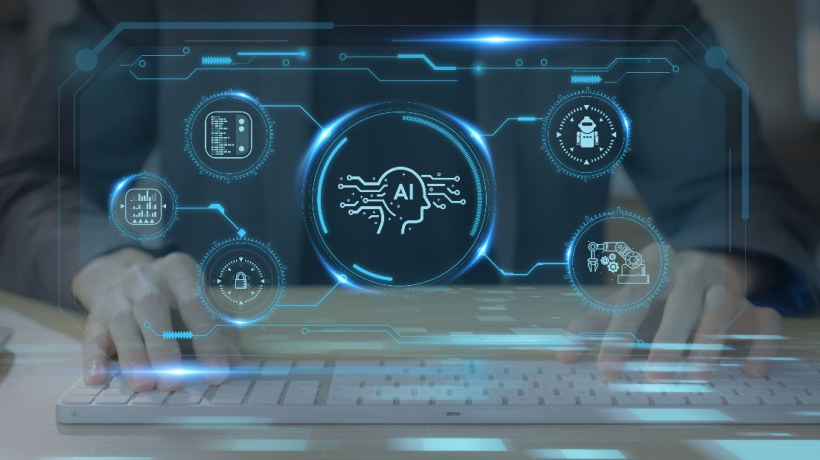Generative AI In eLearning Industry
Welcome to the digital age of education, where Artificial Intelligence (AI) is revolutionizing how we learn. This article will explore the remarkable use cases of generative AI in eLearning and how it reshapes the educational landscape. By harnessing the potential of generative AI, educators and learners alike can unlock a world of personalized and immersive educational experiences. So, buckle up and prepare to embark on an exciting journey into the future of eLearning.
How To Leverage Generative AI In eLearning
1. Enhancing Content Creation
Imagine accessing an endless library of educational content tailored to your needs. Generative AI makes this a reality. It empowers educators to create automated content for various subjects, saving time and effort. Whether math problems, science experiments, or historical simulations, AI-generated content can provide a rich and diverse learning experience. Furthermore, generative AI enables the customization of content based on individual preferences. By analyzing learning patterns and preferences, AI algorithms can curate personalized learning materials that cater to your unique learning style, fostering better engagement and understanding.
2. Personalized Learning Experience
No two learners are the same, and generative AI recognizes this. AI algorithms adapt to your strengths, weaknesses, and learning pace through adaptive learning paths. This personalized approach ensures you receive the right content at the right time, maximizing your learning potential. Moreover, AI-powered feedback and assessment systems offer intelligent insights into your progress. Instead of generic feedback, AI analyzes your performance in-depth, providing tailored recommendations and highlighting areas for improvement. This invaluable feedback loop fuels your growth and encourages self-directed learning.
3. Natural Language Processing For Language Learning
Learning a new language can be challenging, but generative AI is here to lend a helping hand. With AI-driven Natural Language Processing (NLP), language learners can engage in interactive practice and conversational simulations. These simulations simulate real-life conversations, helping you refine your language skills and build confidence in a supportive virtual environment.
AI also offers automatic translation and transcription services, breaking down language barriers. Now you can access learning materials in your native language or explore foreign texts with ease. Additionally, AI-powered language proficiency assessments provide personalized tutoring based on your needs, ensuring rapid progress.
4. Virtual Mentors And Tutors
In eLearning, virtual mentors and tutors powered by AI are emerging as indispensable companions. Imagine having a virtual assistant available 24/7 to answer your questions and guide you through challenging concepts. These virtual assistants provide immediate support [1], enhancing your learning experience and boosting productivity.
AI-powered tutoring systems take personalization to the next level. These intelligent systems assess your learning patterns, identify areas of struggle, and provide targeted guidance. With virtual tutors, you can overcome obstacles, strengthen your understanding, and reach your educational goals.
5. Intelligent Learning Analytics
Data is a goldmine in education, and AI helps us unlock its full potential. By tracking and analyzing your performance, AI-powered learning analytics generate valuable insights. These insights enable educators to identify trends, detect early signs of struggles, and intervene with personalized interventions.
Moreover, predictive analytics leverage historical data to forecast future learning outcomes. Educators can offer timely support by identifying potential roadblocks and ensuring your success. With data-driven insights guiding your learning journey, you can confidently navigate the educational landscape.
Ethical Considerations And Challenges
As we embrace the transformative power of AI in eLearning, it’s crucial to address ethical considerations. Data privacy and security must be prioritized to safeguard sensitive student information. Transparency and fairness in AI algorithms are essential to ensure unbiased learning experiences. It is our collective responsibility to address bias and promote inclusivity in developing and implementing AI technologies.
Future Possibilities Of Generative AI In eLearning
The potential of generative AI in eLearning is immense, and this is just the beginning. As technology continues to advance, we can anticipate even more groundbreaking innovations in the field of education. We may witness the emergence of AI-powered Virtual Reality (VR) and Augmented Reality (AR) experiences, immersing learners in virtual environments for hands-on learning. AI algorithms may evolve to understand better and cater to individual learning styles, further personalizing the educational journey. Collaborative AI platforms might facilitate interactive group projects, fostering teamwork and collaboration in virtual classrooms.
However, as we embrace the potential of generative AI, we must tread carefully and address the ethical challenges. Striving for transparency, fairness, and inclusivity should be at the forefront of AI development and implementation.
Last Note
You can access a world of personalized, immersive, and engaging educational experiences as a learner with innovative generative AI-powered technologies. So, embrace the power of AI in your learning journey, and unlock your full potential in the digital era of education. Let the collaboration between human ingenuity and AI innovation shape the future of eLearning, making education more accessible, inclusive, and impactful.

